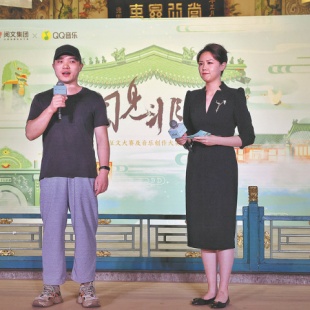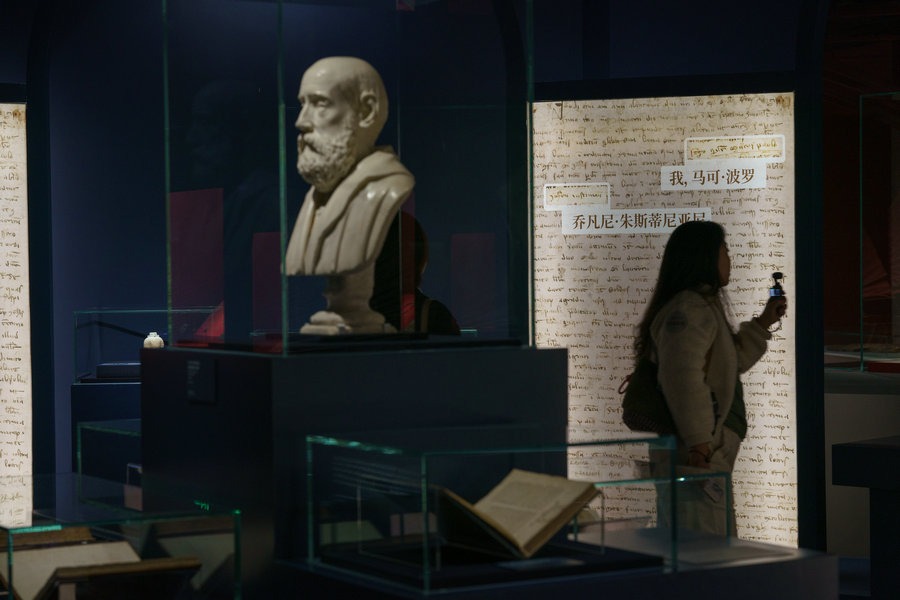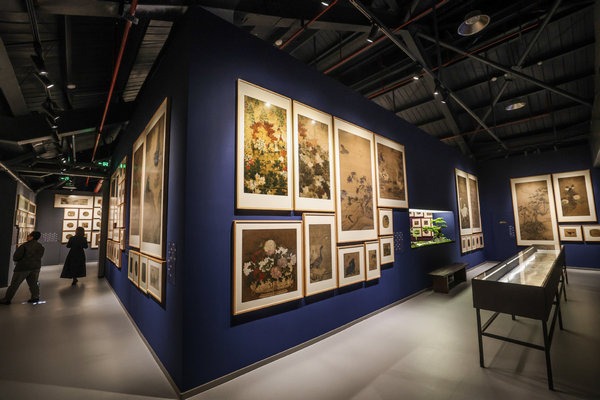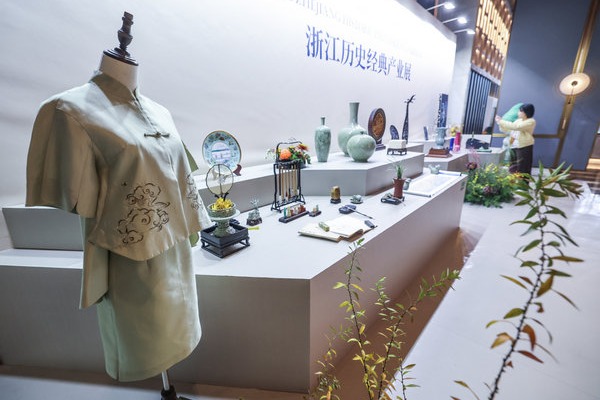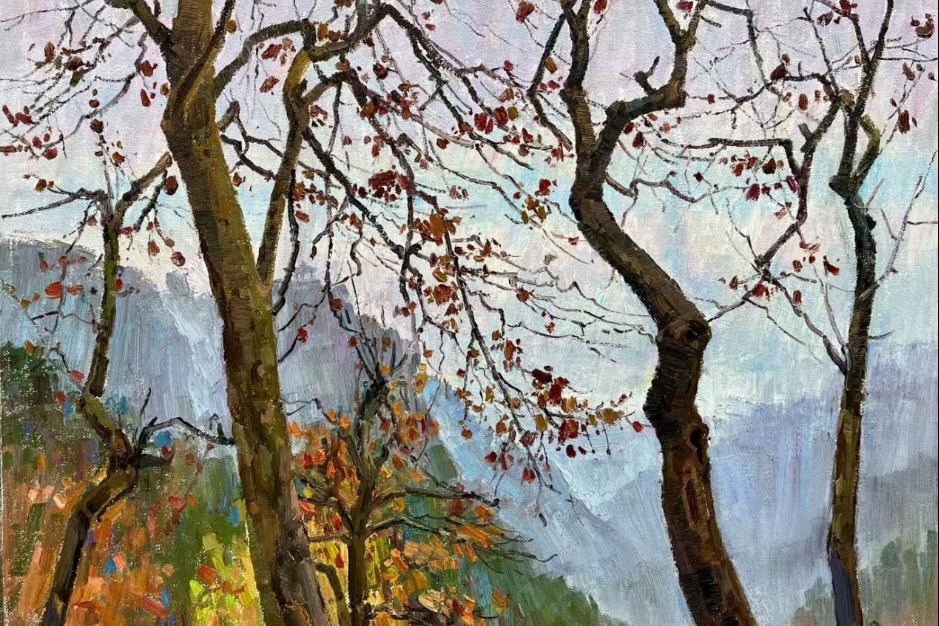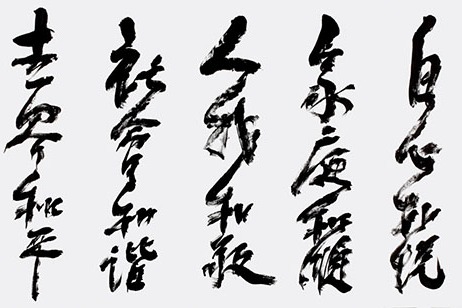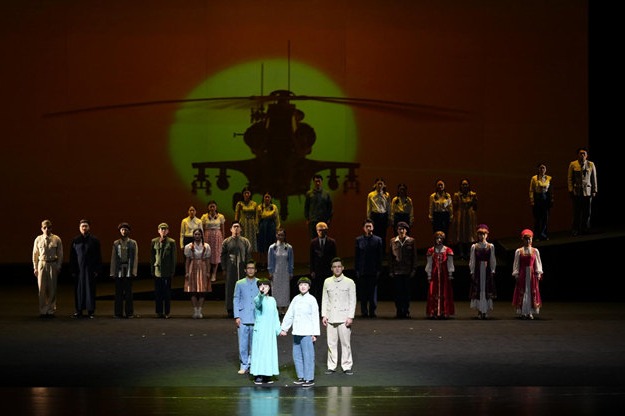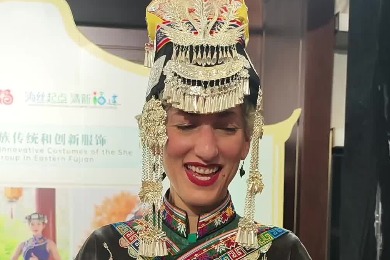Online writers and music composers help inherit cultural heritage

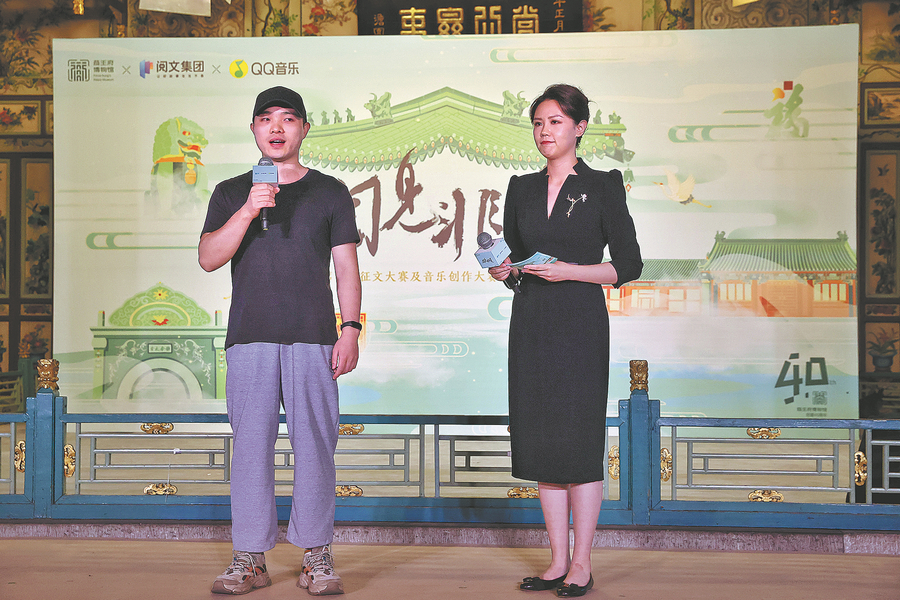
The awards ceremony for the first Yuejian Feiyi competitions for online novels and composition related to intangible cultural heritage was held at Prince Kung's Palace Museum in Beijing on Oct 9.
The competitions, jointly held by the China Literature Group, one of the leading online literature platforms in China, Prince Kung's Palace Museum, and music platform QQ Music, kicked off last year, encouraging the creation of online novels and music related to intangible cultural heritage.
"Through this competition, we can see the vibrancy of intangible cultural heritage among young people, and the chemistry when it collides with online literature," says Hou Xiaonan, president of China Literature Group.
The online novel competition led more than 50,000 people to write 63,974 novels, and more than half of them were written by people born after 1990. Altogether 127 types of intangible cultural heritage were described in these novels.
Ten online writers and three composers won prizes.
"From getting to know intangible cultural heritage to falling in love with it, more and more young people are becoming amateur inheritors of these items," says Hou.
The practices like wood carving, papermaking, embroidery and tie-dyeing depicted in the novels are no longer just symbols, but stories with warmth and emotion, he adds.
According to Feng Nai'en, director of Prince Kung's Palace Museum, the museum signed a three-year cooperation agreement with the China Literature Group last year, with the aim of "exploring new ways for traditional culture, represented by intangible cultural heritage, to be integrated into the digital industry".
"Through the competitions, words and music both become powerful tools to explore and show intangible cultural heritage," says Feng.
The agreement has led to various activities that promote such integration. For example, online writers were introduced to intangible cultural inheritors to learn about their crafts and gain inspiration. They also had chances to participate in seminars that discussed the crafts.
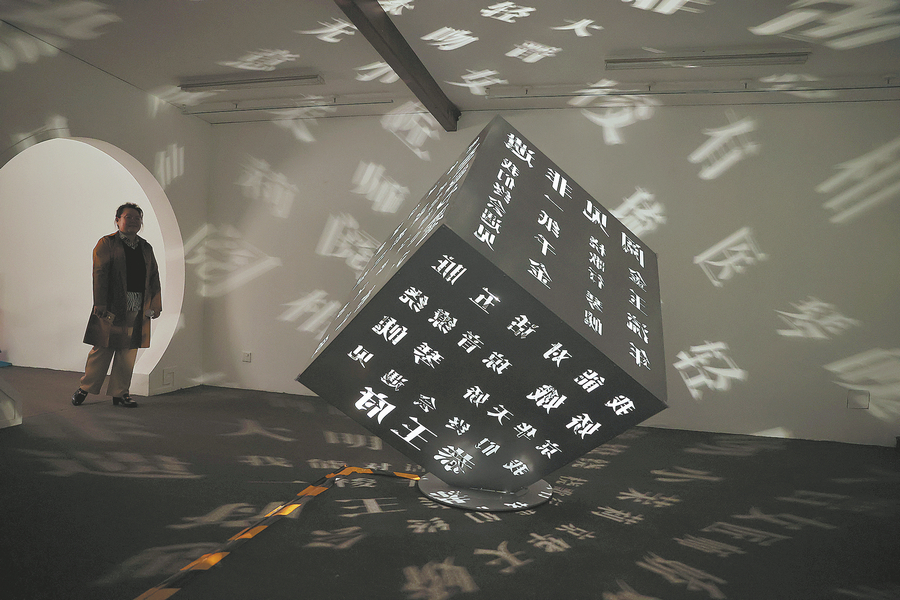
Top prize winner Golden Jasmine (pen name), who is an online writer, says the elements related to intangible cultural heritage in his book, like wood carving, the 24 Solar Terms and guqin (a seven-stringed Chinese zither) making, were taken from what he heard and saw during field trips.
"I found them amazing and wrote about them. I hope my readers will get to know the diversity and dynamism of intangible cultural heritage when reading my book," he says.
An exhibition highlighting the combination of online literature with intangible cultural heritage is ongoing at Prince Kung's Palace Museum. It aims to showcase literary works and their presentation of intangible cultural heritage elements through creative settings of light and shadow and content design, so as to raise public awareness and interest in China's traditional culture.
For example, fruit pit carving, a folk handicraft in which the kernels of green olives, peaches, apricots, prunes, walnuts and other fruits are intricately cut to make artistic ornaments, was described in the novel Shou Yi Ren (Guarding One Person), written by Hera Qingqing (pen name), a prizewinner of the competition. The craft, with many variations in China, has been listed as a national-level intangible cultural heritage.
A fruit pit carving studio with an operating platform, tools and final works is on show at the exhibition. Zhou Jianming, an inheritor of this craft, demonstrates his carving skills on-site as well. Paragraphs from the novel depicting the craft are displayed on the wall.
A roundtable dialogue discussing how to show the beauty of traditional culture through online literature was also held at the ceremony, during which delegates said intangible cultural heritage elements are not new in online literature, and the traditional culture contained in them is attractive to modern people.
The second round of the competitions will kick off later this year.
wangru1@chinadaily.com.cn


